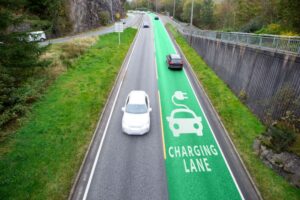
Zahra
When we think about vehicles, most of us picture the car we drive, the bus we take to work, or the tuk-tuk we hop into for a quick ride. But vehicles are much more than just machines that take us from point A to point B. They are part of our daily rhythm, shaping how we live, how we work, and how we connect with the world. Over the years, I’ve realized that vehicles are not only about convenience but also about culture, economy, and even personal growth.

A Personal Connection with Vehicles
Growing up, I remember the excitement of sitting in my father’s old car. It wasn’t fancy, but it held stories family trips, late night hospital runs, and even breakdowns that turned into unexpected adventures. Vehicles carry memories. For many of us, our first motorbike or car feels like a symbol of independence. It gives freedom but also teaches responsibility.
Even today, whenever I take a bus ride in Sri Lanka, I notice how vehicles bring strangers together. A crowded bus isn’t always comfortable, but it reflects the energy of our society students, workers, vendors all moving together toward their daily goals.
Why Vehicles Matter Beyond Travel
Vehicles are often treated as simple tools. Yet, when we look deeper, they impact almost every aspect of life:
Economy: Transport supports trade, tourism, and small businesses. A farmer relies on vehicles to get crops to markets. Without affordable transport, income suffers.
Social Life: Vehicles connect families and friends. Imagine living in a village with no bus service you’d feel cut off.
Education and Work: Students depend on vans or buses. Employees depend on trains and office shuttles. Without vehicles, opportunities shrink.
In short, vehicles are not just machines, they are lifelines.

Useful Tips on Choosing a Vehicle
One mistake many first-time buyers make is rushing to buy the flashiest vehicle. But in reality, the right choice depends on your lifestyle and budget. Here are a few things I’ve learned:
Calculate Long-Term Costs – Beyond the purchase price, consider fuel, maintenance, and repairs.
Check Spare Part Availability – Some imported vehicles look attractive but finding spare parts later becomes a headache.
Think About Resale Value – In markets like Sri Lanka, Japanese cars and certain motorbike brands hold resale value better.
Consider Fuel Efficiency – Especially with rising fuel prices, a vehicle with good mileage can save thousands annually.
Match to Your Purpose – If your daily travel is short, a scooter may be smarter than a car. For family use, a van might make more sense.
Maintenance Knowledge Every Driver Should Have
A lot of people depend fully on mechanics, but I’ve found that knowing a few basics can save both money and stress. Some useful tips I recommend:
Check Tire Pressure Weekly – Underinflated tires burn more fuel and wear out faster.
Change Engine Oil on Time – Fresh oil keeps your engine smooth and extends its life.
Carry an Emergency Kit – Include jumper cables, a torch, first-aid, and a spare tire.
Learn Basic Repairs – Even just knowing how to change a flat tire can save you in emergencies.
Wash Regularly – Dust, mud, and salt (especially in coastal areas) damage paint and metal over time.
I once ignored a small oil leak in my bike, thinking it was “not urgent.” It ended up costing me triple in engine repairs later. Lesson learned: preventive care is cheaper than major repairs.
The Role of Innovation in Vehicles
Vehicles are changing faster than we think. Electric vehicles (EVs) are no longer just a Western trend they are slowly entering our roads too. These innovations matter because they reduce fuel dependency and pollution.
I had the chance to test ride an electric scooter once. At first, I doubted its power. But it was surprisingly smooth and cost almost nothing compared to petrol. The only issue? Charging points. But I believe EVs will soon become common as technology spreads.
Hybrid vehicles are another smart step. They mix fuel with electric power, saving costs and being eco-friendly. For young readers, my advice is to keep an eye on such trends, because in 5–10 years, they may dominate the market.

Safety Tips That Save Lives
No matter how advanced vehicles become, safety is the most important factor. Road accidents are sadly common, often due to recklessness or poor vehicle upkeep.
Here are safety lessons I’ve picked up:
Always Wear Helmets and Seatbelts – They’re not optional; they’re lifesavers.
Don’t Overload – Whether it’s passengers or goods, overloading risks accidents.
Maintain Brakes Regularly – Even the best driver can’t stop on time with weak brakes.
Avoid Distractions – Using a phone while driving is as dangerous as drunk driving.
Respect Speed Limits – Speed thrills, but it also kills.
A close friend of mine survived a major bike accident only because he wore a helmet. That incident changed the way I see safety forever.
Vehicles and the Environment
One concern we cannot ignore is pollution. Vehicles contribute heavily to air quality issues, noise, and traffic congestion. I’ve noticed how different the city feels during New Year holidays air is fresher, and the streets are peaceful.
Here is small but powerful eco-friendly practices readers can adopt:
Carpool or Share Rides – Saves money and reduces traffic.
Use Public Transport When Possible – A single bus keeps dozens of cars off the road.
Maintain Engines – A tuned engine produces fewer emissions.
Choose Fuel-Efficient Models – Think about long-term savings for both your wallet and the planet.
Every small effort counts. If more people practice these habits, cities can become healthier places.
Knowledge for First-Time Drivers
For readers who are learning to drive or about to buy their first vehicle, here are a few useful tips I wish someone told me earlier:
Start Small – Don’t jump into a large car, practice with smaller vehicles first.
Understand Road Etiquette – Signals, giving way, and patience matter as much as skill.
Budget for Insurance – Never skip insurance; it protects you financially.
Keep Documents Handy – Vehicle registration, insurance papers, and license should always be in the vehicle.
Driving is not just about handling a machine; it’s about responsibility toward yourself and others on the road.
Final Thoughts
Vehicles, to me, are not just machines made of steel and engines. They are companions in our journey, sometimes frustrating, often essential, and always impactful. They shape our independence, support our economy, and connect us with each other.
As I reflect on my experiences squeezing into buses, enjoying late-night tuk rides, dreaming of cars, and learning from bike repairs. I realize vehicles are part of our identity. They teach patience, responsibility, and adaptability.
For readers, I hope this article does more than provide information. I hope it sparks reflection on how vehicles influence your own life. Whether you’re a daily commuter, a first-time buyer, or simply someone curious about the future of transport, remember this: a vehicle is more than a ride; it’s a mirror of how we move forward as people.